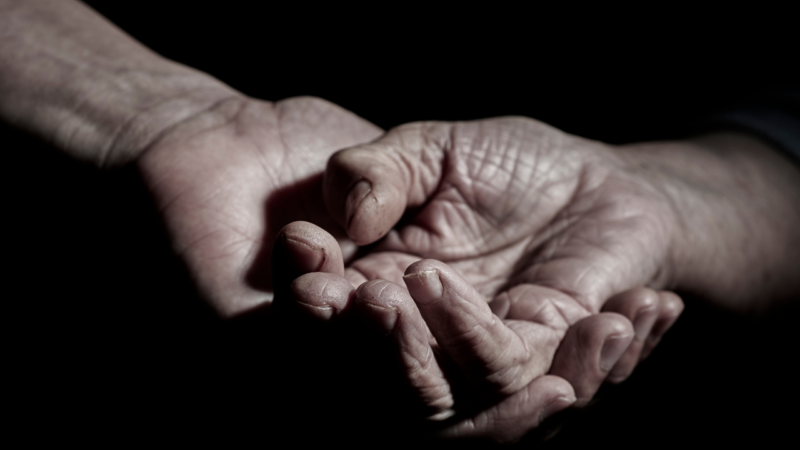Peripheral neuropathy can affect anyone, regardless of age, gender, race or ethnicity, but the risk of developing it increases as we get older so it’s something we need to be aware of as our elderly Mums and Dads continue living independently at home for longer.
So what is peripheral neuropathy and how can a trained physio help? Read on to better understand the condition and what can be done.
What is peripheral neuropathy?
Peripheral means far from the centre of the body, and neuropathy refers to a condition which affects the nerves. Peripheral neuropathy can be considered a ‘nerve injury’ affecting the arms or legs. It is most common in the feet or the hands. A person with a peripheral neuropathy condition usually has reduced sensation or numbness, weakness and may have altered sensation such as pins and needles, tingling or even pain.
Diabetes is the most common cause of peripheral neuropathy. Other causes include direct injury to the nerves or damage due to infection.
What are the risks?
(a) Balance problems & risk of falls
Imagine walking around with wooden stumps instead of feet. You can’t feel a thing below your ankles. How do you know if the ground is flat or sloped? Soft and spongy like grass, slippery like tiles or shifting like sand? How do you know if your foot landed on the step or if you just missed it?
Sensation is critical to our balance – there are messages coming up to the brain from our feet and legs all the time. Our feet give us information about the type of ground we’re standing on, and tell us how to adjust our balance accordingly.
This information is limited if you have peripheral neuropathy and numbness in your feet, which means poorer balance and higher risk of falls.
(b) Unnoticed injuries
A person with peripheral neuropathy may not feel any pain from injuries to their hands or feet, so may have no idea that anything has happened!
This is particularly problematic for feet – unlike hands, they are rarely seen by family, medical professionals and even the person themselves, meaning injuries can go unnoticed and untreated for longer.
Common injuries to hands and feet include:
- Cuts, grazes or bruises from bumping your hands or feet.
- Burns, which may be caused by hot water while washing hands, doing the dishes or showering; heat packs/wheat bags that are too hot; or ice packs placed directly on the skin (cold burns). If you have PN, you may not notice the temperature is too severe until the damage is done.
- Pressure areas from tight shoes and blisters from loose or ill-fitting shoes. (A pressure area is an injury that develops with constant pressure to one part of the body, and can progress from redness of the skin to an open wound.)
(c) Complications
If injuries cannot be felt and are not seen, they will not be treated. A minor cut or a blister could become infected, and pressure injuries can become very deep if allowed to progress.
Injury prevention is especially important for people with diabetes, as healing is slower in people who have this condition. Larger wounds may require skin grafting or even amputation in the worst cases if they are unable to heal.
Luckily, these big issues can be avoided by spotting small injuries early and taking steps to prevent them from happening in the first place.
What can I do?
Foot checks!
One of the best things you can do for someone with peripheral neuropathy is to regularly look at their feet.

You should check between the toes, on the bottoms of the feet and on the lower legs.
WHAT TO LOOK FOR:
-
- Redness – could be the early stages of a pressure injury
- Calluses – caused by constant rubbing or pressure. Calluses are at risk of becoming a pressure sore
- Toenails – overgrown, or cut too close to the nail bed
- Cuts or sores
- Bruising or discolouration
- Temperature – hot or cold compared to normal for that individual.
Swelling
If you see any of these signs, or if something just doesn’t seem right, be sure to book in with your GP for a professional opinion and to get the problem sorted.
Hot water limit
You can prevent burns and scalds by having a temperature limit set on your home hot water service. A plumber can help you get this set up.
Heat pack & ice pack safety
Heat or ice packs are generally not recommended in areas with reduced or altered sensation (such as with peripheral neuropathy), especially if the person has cognitive or memory loss issues and might forget to follow precautions. The following precautions apply for anybody using heat or ice packs.
IMPORTANT PRECAUTIONS:
- Visual checks: Remove the heat/ice pack regularly to conduct a visual check – look at the skin to check for redness, swelling or discolouration
- Timing: Apply for 20 minutes at a time, then have a 2-hour break
- DO NOT use a heat or ice pack while you sleep
- Temperature: Test the temperature of heat packs on another area of the body, such as the inside of your wrist. Ask someone else to test the temperature for you if you know your sensation is poor
- DO NOT apply heat/ice packs directly to the skin – wrap them in multiple layers of a towel or cloth
How can a physio help?
1. Balance training
- Exercise, especially exercise including balance training, has been found to reduce the risk of falls in older people
- There are many systems in your body which help to control your balance, including your brain, your muscles and nerves, your sensation, your vision and your inner ear. Your physiotherapist can help you strengthen these systems to improve your balance, which can help compensate for poor sensation in your feet due to peripheral neuropathy.
- Balance training may include stepping to targets on the ground, walking heel-toe as if on a tightrope or keeping your balance with your eyes closed. There are endless variations!
- It is important to start any exercise program under guidance from a professional. As balance training will challenge your stability, it is important to start at the right level so you are safe and do not fall over!
- Your physio can tailor the activities and exercises to your personal goals and challenges in your day-to-day life, so you get the maximum benefit from your hard work.
2. Reducing falls hazards in the home, including:
- Spotting clutter and tripping hazards.
- Recommending equipment – physiotherapists can recommend mobility equipment such as walking frames to give extra support and confidence to people with poor balance.
- Your physiotherapist may suggest other home equipment such as a shower chair (to sit down while you shower), rails or non-slip mats, and will likely suggest you seek out an occupational therapist for their expertise in equipment.
3. Education
- Continued education on self-help and preventative strategies, such as those described throughout this article.
4. Coordinate your team
- Physiotherapists are broadly trained, and can identify issues that will be best cared for by another health professional. Your physio can point you in the right direction to address falls risk factors such as medication side effects (e.g. dizziness), wearing bifocal glasses or having unsupportive footwear.
Who else can help?
Podiatrists
- Foot care, including cutting your nails, to keep your feet clean and healthy, and checking for injuries or abnormalities.
- Footwear recommendations:
-
- to prevent blisters or pressure sores
- to prevent falls – you need supportive, well-fitting (not loose) shoes with a good grip on the soles.
- to prevent musculoskeletal injuries from walking in shoes that may put unnecessary pressure on particular joints, muscles or ligaments.
Optometrist
- Your eyesight is very important to your balance. If your balance is already reduced by poor sensation in your feet it becomes even more important to ensure your vision is the best it can be.
Diabetes specialist (nurse or doctor)
- Controlling your diabetes can prevent or slow the progression of peripheral neuropathy.
General practitioner
- Help to coordinate your care, and advise how often each of the above services should be utilised.
- Treat or manage the underlying cause of your peripheral neuropathy, to prevent or slow down any worsening of the condition.
- Prescribe medications to help relieve pain.
At The Physio Co (TPC), we strive to make a meaningful difference by helping to improve the overall well-being of Australia’s seniors. If you’d like more guidance on how to help your elderly Mum or Dad live a more active, independent life, please get in touch! Our team of physiotherapists are here to help: call today for a no-obligation chat on 1300 797 793.
Article written by Tessa Machin, TPC physiotherapist
MEDICAL REFERENCES:
- https://www.seslhd.health.nsw.gov.au/sites/default/files/documents/SESLHDGL%20073%20-%20Application%20of%20Heat%20or%20Cold%20Therapy.pdf
- https://www.healthdirect.gov.au/peripheral-neuropathy
- https://www.diabetesfeetaustralia.org/for-patients/



 1300 797 793
1300 797 793